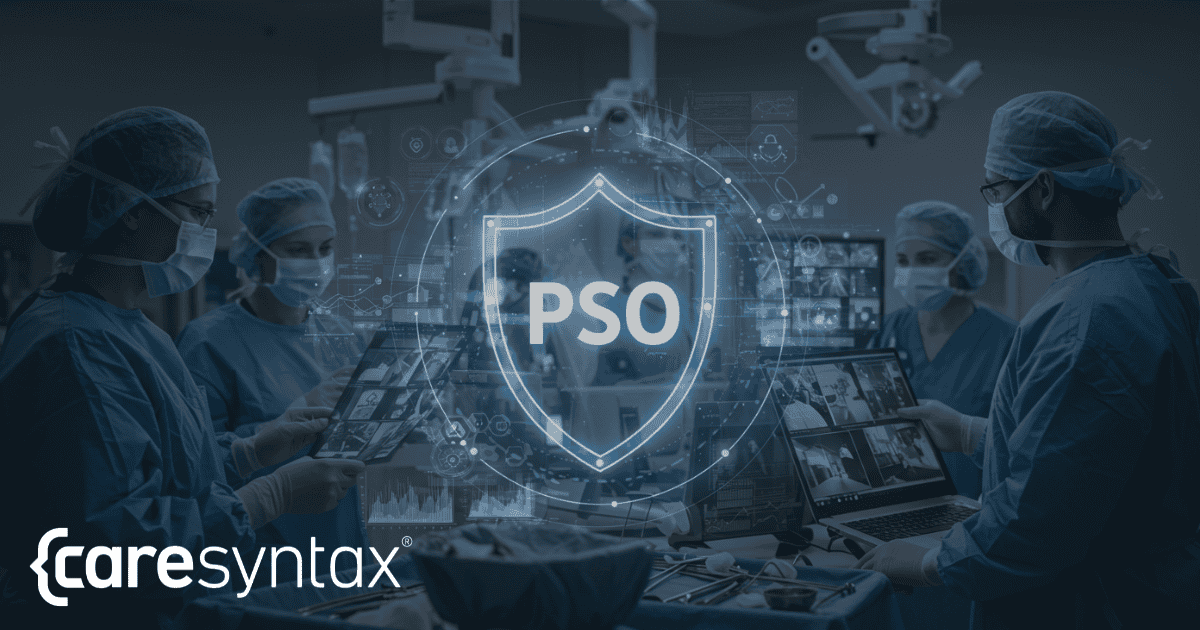
Blog
Surgical Video Data Privacy, Misconceptions & the Benefits of PSO
Learn More

Caresyntax Blog
February 13, 2025
In the quest for safer surgical and procedural care, healthcare organizations are increasingly turning to video technology. Surgical and procedural video offers a wealth of information that can be used for education, training, and quality improvement initiatives, allowing surgeons and clinicians to observe techniques, learn from experts, and refine their skills. Video enables objective assessment of surgical performance and surgical team dynamics, helping to identify areas for improvement and promoting best practices.
Moreover, in the event of an adverse event, video footage can be invaluable for conducting thorough root cause analyses, identifying contributing factors, and developing corrective actions. Analyzing surgical video can also help identify trends and patterns, leading to system-level improvements and enhanced patient safety.
However, the use of surgical and procedural video raises important considerations regarding patient privacy and confidentiality. Videos captures sensitive patient information, including images and potentially identifying details.
Protecting patient privacy is not only a matter of compliance, but also essential for maintaining trust and fostering open communication among healthcare providers. Creating a safe and trustworthy environment where healthcare providers can openly discuss and learn from surgical video is crucial for continuous improvement.
Patient Safety Organizations (PSOs), authorized by the Agency for Healthcare Research and Quality (AHRQ), offer a valuable solution for protecting data designated as patient safety work product (PSWP) including surgical and procedural video. PSOs provide a secure environment for the collection and analysis of patient safety data, including video recordings. The confidentiality and legal privilege protections afforded by PSOs encourage voluntary reporting and open communication, essential for creating a culture of safety.
PSOs also have robust data management systems to ensure the secure storage and handling of sensitive video recordings. They provide expertise and guidance on de-identification techniques, ensuring patient privacy while preserving the educational and analytical value of the videos.
Critically, the Patient Safety and Quality Improvement Act of 2005 established that patient safety work product collected and analyzed by PSOs is privileged and confidential, and generally not discoverable by plaintiffs in legal proceedings. This protection is vital, as it allows healthcare providers to openly share information with PSOs without fear of it being used against them in litigation. This fosters a culture of transparency and encourages providers to proactively identify and address safety concerns.
By providing a safe space for the analysis and discussion of surgical videos, PSOs foster a culture of safety and continuous improvement in the healthcare industry.